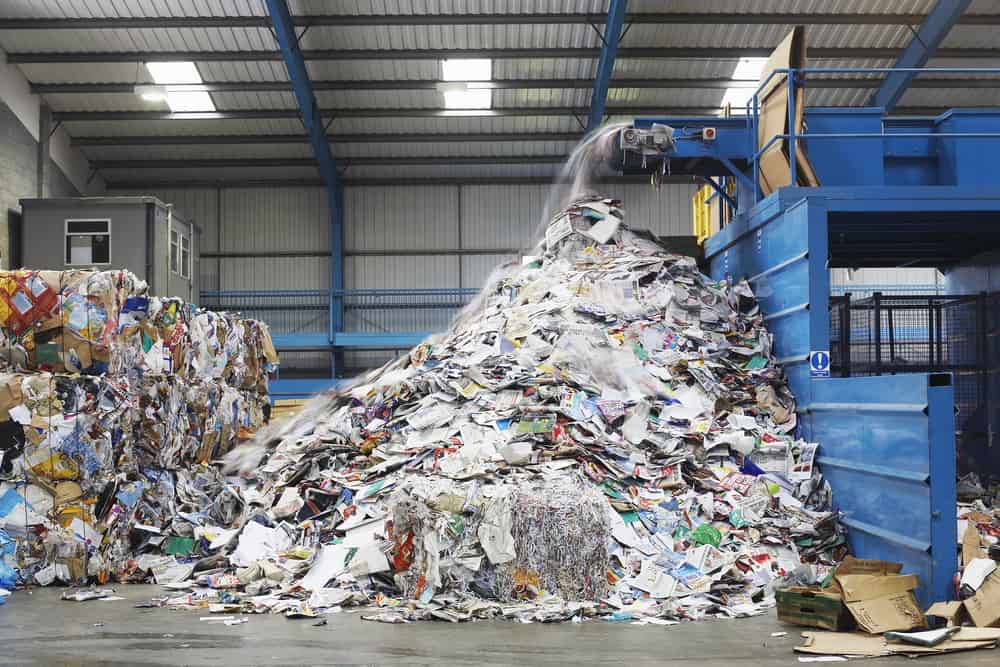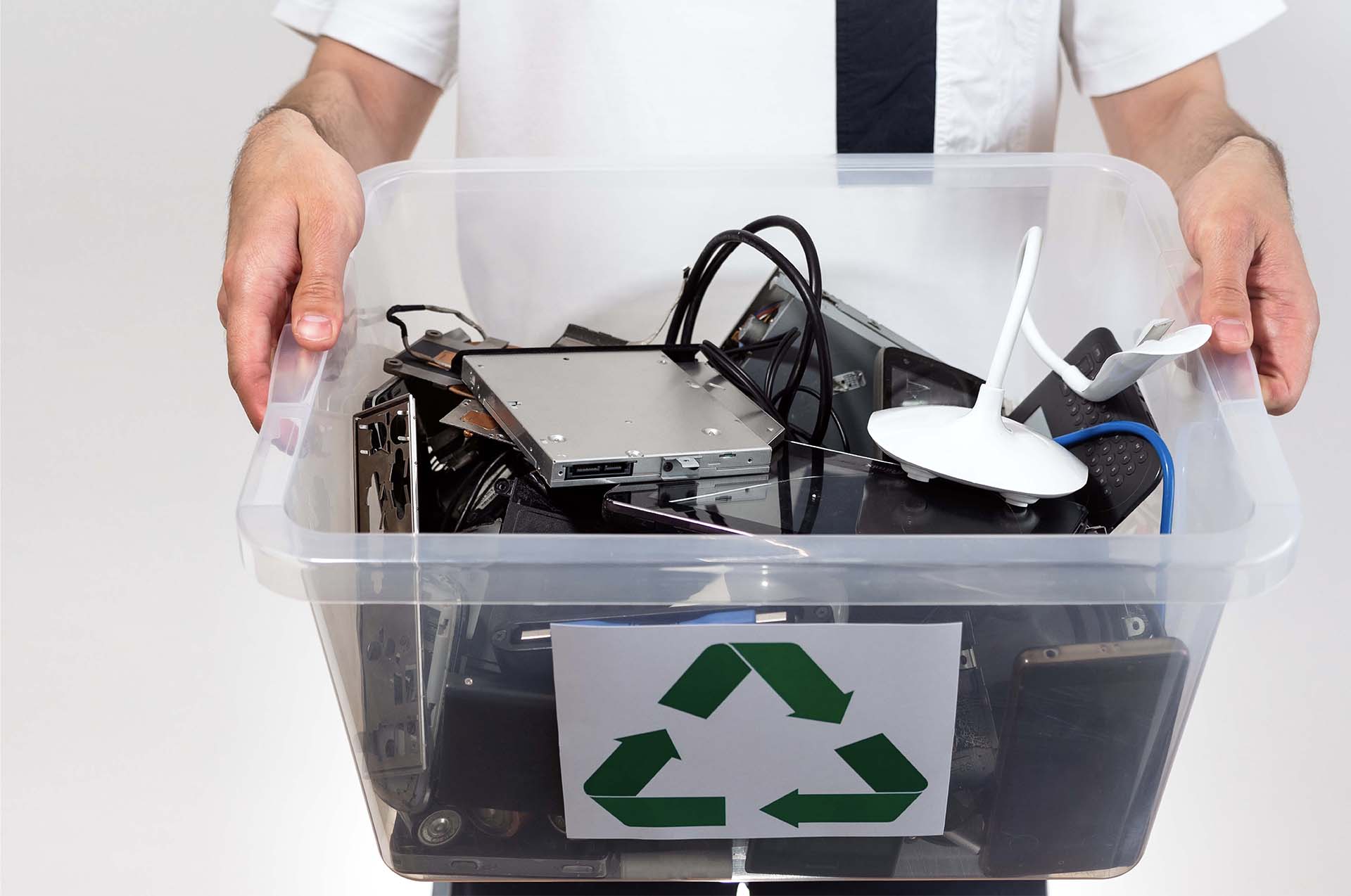
Written by Ravinder Sangha
March 16, 2025
Featured product
Product Name Here
Explore the latest and most innovative SaaS solutions that are transforming industries. Stay ahead with our curated selection of cutting-edge products.
Electrical waste (e-waste) has grown into a major problem during modern digital time. Businesses that depend heavily on technology need to grasp both positives and negative aspects of e-waste during business management operations. The proper management of e-waste provides opportunities to retrieve resources from electronic waste but failure to manage it correctly generates environmental risks and health impacts.
Pros of E-Waste
- Physical elements within E-waste have worth because they include platinum as well as gold silver copper. Dismantling and reusing valuable elements from recycling operations decreases society’s requirement for mining activities as well as protects earth’s natural resources. The Global E-waste Monitor 2020 shows that e-waste materials worth $57 billion are present in annual disposal amounts. The recovered materials become the foundation for making fresh electronic equipment which decreases reliance on original resources while decreasing production expenses. Resource recovery is improved by both automated dismantling processes and advanced sorting methods.
- The e-waste recycling industry established multiple thousands of employment positions across the world. Businesses who extract important materials from waste items generate sustainable economic development. Regional growth through job creation becomes essential in areas with few employment prospects due to the crucial nature of e-waste management. These work prospects help emerging markets mostly in developing nations to stabilize their socio-economic conditions.
- Recycling e-waste consumes much lower energy levels than extracting new materials from mines. Reprocessing aluminum for recycling needs just five percent of the energy it takes to extract bauxite ore yet generate aluminum. The business practice of efficiently reprocessing old electronics enables companies to decrease their carbon emissions which helps advance worldwide climate change mitigation goals. The production of a single ton of copper through recycling methods saves approximately 85% of the energy which would be needed for extracting copper from its natural sources.
- Modern e-waste recycling technology has led to better efficiency in the waste management process. The hydrometallurgical together with pyrometallurgical processes provide safe methods to recover precious metals found within electronic devices. The combination of recent shredding and separation innovation methods improves process efficiency which leads to higher resource recovery levels. The integration of robotic sorting systems within modern recycling facilities creates accurate sorting while minimizing labors and environmental harm.
- PSUs that efficiently handle e-waste through proper disposal strategies access better corporate reputation. Businesses implementing sustainable practices show their social responsibility through environmental values which leads to attracting consumers who care about ecological issues. Organizations which actively reveal their achievements in e-waste reduction establish customer allegiance and develop better brand reputation. Businesses which establish return or take-back programs combined with customer incentives for device return will enhance their eco-friendly reputation even more.
Cons of E-Waste
- E-waste disposal without proper methods causes environmental damage because toxic chemicals including lead, mercury and cadmium escape into the air. The substances from improper disposal contaminate water and soil habitats which causes serious risks to ecosystems and human health. Landfill deposits of these harmful substances can produce toxic releases that spread throughout the ground to affect local populations and animal species. Environments suffer from toxic gas emissions which result from disposing e-waste through burning to recover metals thus advancing air contamination and climate alterations.
- The dismantling of electronic waste leads to health hazards because developing countries employ manual laborers to dispose of hazardous substances. The contact with hazardous waste leads health problems that range from breathing complications to skin illnesses and injuries to the nervous system. Citizens of these areas including both the young and those who are pregnant demonstrate special sensitivity to hazardous substances because their exposure has generated developmental complications and birth malformations. The health dangers faced by workers increase because informal recycling sectors provide minimal to no protective equipment.
- Electronic devices discarding by businesses carries risks because they generally maintain sensitive business data. Organizations that fail to execute proper data wiping and destruction techniques put themselves at risk for both monetary loss and public image degradation together with potential data breaches. Hackers use stolen products to extract important confidential data that results in both identity theft and fraudulent activities. Organizations seeking data protection should implement certified data destruction techniques such as degaussing or secure shredding to combat these security threats.
- Due to essential needs of recycling there are significant expenses to consider. Specialized equipment combined with increased labor needs and transportation costs hinder several businesses from putting proper disposal first. Large-scale e-waste recycling operations pose logistical problems to business entities producing substantial amounts of electronic waste. Specialized recycling firms offer cost reductions through bulk processing rate discounts to their partnering businesses.
- Absence of specific e-waste management rules affects numerous regions that exhibit inadequate understanding of proper waste disposal principles Improper disposal of e-waste material leads to environmental degradation along with escalating health dangers in the area. Companies in nations with weak e-waste laws help maintain dangerous disposal procedures by their inattention to regulations. The global waste management practices need improvement which requires both corporate and local community awareness education programs.
Managing E-Waste for Business Success

To balance the pros and cons, businesses must adopt responsible e-waste management strategies:
- Develop E-Waste Policies: Establish clear policies for e-waste collection, recycling, and disposal. These policies should outline best practices for securely discarding old electronics and identify certified recycling partners.
- Your company should choose authorized recycling firms as partners to handle waste responsibly through efficient and safe methods. Recyclers who hold certification must adhere to rigorous environmental procedures which allows them to extract resources properly.
- Employer Training Includes Teaching Workers About Correct E-Waste Handling Methods. Businesses who promote awareness among employees will achieve both minimized e-waste discarding mistakes and higher recycle results.
- Product Lifecycle Planning allows investment in durable electronics together with circular economy practices that extend device lifespan. Leasing electronics alongside providing repair services reduces device replacement frequency. A business can minimize device replacement through leasing opportunities and providing maintenance repairs.
- Successive enterprises should create Take-Back Programs in partnership with retailers or manufacturers to collect retired electronic devices from users. The establishment of recycling programs helps increase waste collection levels and provides proper disposal methods.
Conclusion
Businesses can use e-waste advantages through the implementation of sustainable management systems. Companies should adopt responsible disposal methods to defend environmental assets and build their public image and promote economic development. Businesses should focus on advanced recycling systems combined with data protection measures to handle e-waste risks effectively. Organizations that implement complete e-waste strategies both protect the environment and enhance their reputation before their customers.

Explore newly launched and trending digital products on our home page.
Discover the Future of SaaS Innovation
Welcome to Next Big Product
Explore the latest and most innovative SaaS solutions that are transforming industries. Stay ahead with our curated selection of cutting-edge products.
Related Articles
200 Cool name for digital art company
Explore the latest and most innovative SaaS solutions that are transforming industries. Stay ahead with our curated selection of cutting-edge products.Digital art business startup creates an exciting experience which requires significant effort to discover the right...
10 Best businesses for Stay at home moms
Explore the latest and most innovative SaaS solutions that are transforming industries. Stay ahead with our curated selection of cutting-edge products.Many women who stay at home to raise their families find it difficult to achieve both financial freedom and proper...
10 Best businesses for Stay at home dads
Explore the latest and most innovative SaaS solutions that are transforming industries. Stay ahead with our curated selection of cutting-edge products.The combination of work and family responsibilities poses challenges for fathers staying at home, but owning a...


